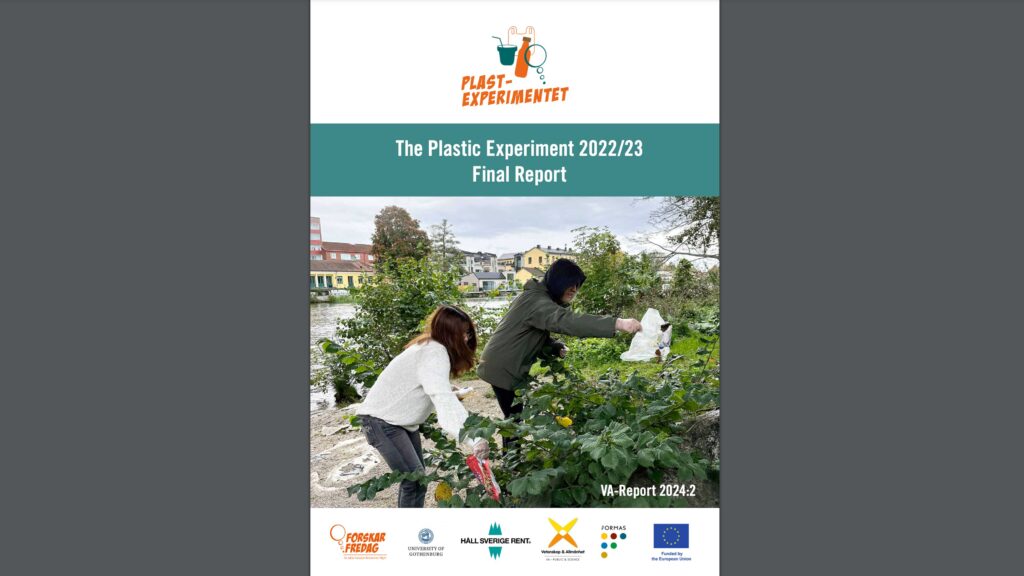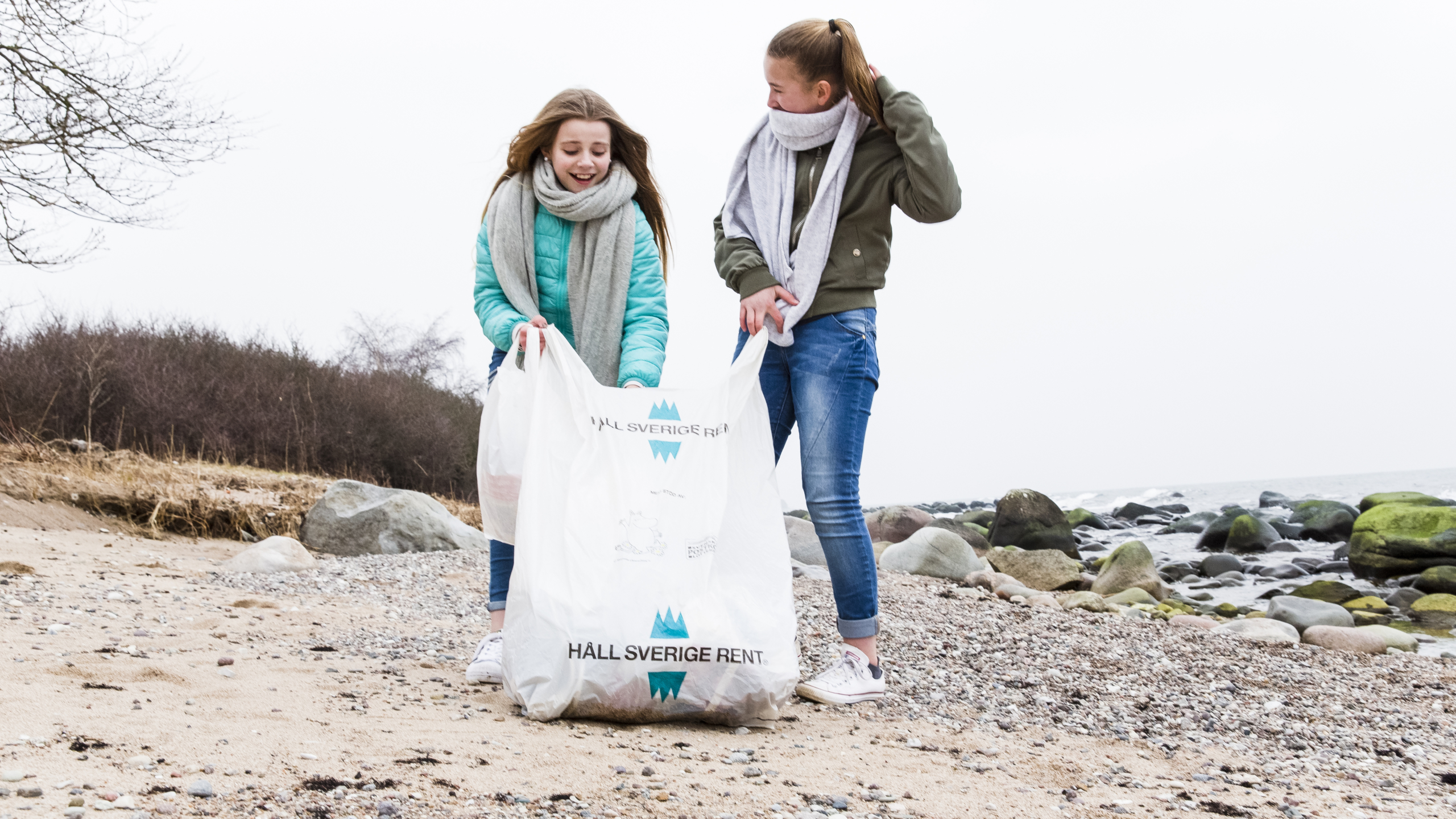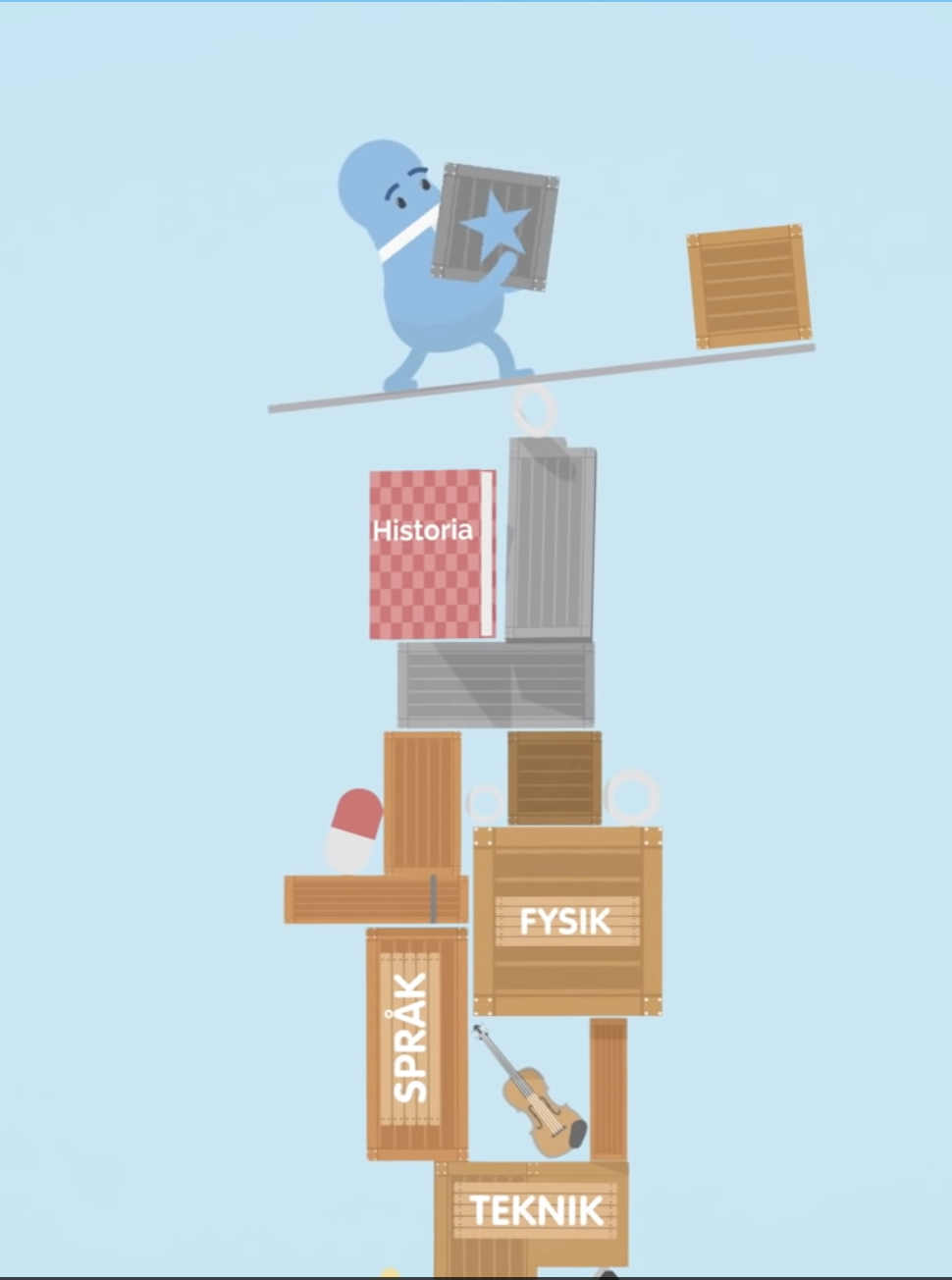The Plastic Experiment is a nationwide Citizen Science project in which Keep Sweden Tidy Foundation, Public & Science Sweden and the University of Gothenburg have been working together to investigate how much plastic litter can be found in different types of natural environments throughout Sweden. With the help of individuals, organisations and school pupils, an area of almost 830,000 square meters has been surveyed over two years, and 60,000 plastic items collected. The findings show the most common types of plastic waste are cigarette butts, plastic packaging and plastic bags.

In the Plastic Experiment, participants from across Sweden were involved in picking up, sorting and reporting the plastic litter that they found. The findings provide an insight into the distribution of plastic waste across different natural environments. In total, 339 locations were studied and 60,000 plastic items logged across 830,000 square meters, an area equivalent to around 115 football pitches.
”The benefits of citizen science include the amount of research data that can be collected over a short period of time along with engagement that is fostered with the participants. However, the research method needs to be further developed to avoid a concentration on urban environments, which are more accessible to participants. This type of citizen science can help with environmental monitoring and inform evidence-based policy and behavioural change,” said Bethanie Carney Almroth, a Professor at the University of Gothenburg and the scientific lead for the project.
The data collection took place during 2022 and 2023 over four separate periods; in conjunction with Keep Sweden Tidy’s Cleanup Days in both spring seasons, and as part of ForskarFredag science festival (European Researchers’ Night) in both autumns. The highest participation was observed in the Stockholm area and along the west coast between Gothenburg and Malmö, with additional participants dispersed throughout the country.
Cigarette butts, plastic packaging and plastic bags are most prevalent
Findings from the Plastic Experiment show that cigarette butts are the most prevalent type of litter, constituting 21 percent of all plastic waste. Soft plastic packaging follows at 16 percent, and hard plastic packaging at 10 percent. Both large and small plastic bags collectively account for 8 percent of all litter and were found in all types of natural environment as well as in 40 percent of the surveyed sites.
“Unfortunately, it is not unusual for cigarette butts and plastic packaging to be at the top. But the prevalence of so many plastic bags in nature, despite efforts in recent years to reduce consumption and littering, is worrying,” commented Johanna Ragnartz, CEO of the Keep Sweden Tidy Foundation.
Attitudes and intentions towards littering
A follow-up attitude study investigated young people’s attitudes and intentions towards littering. The study involved a total of 174 children and adolescents, revealing that the willingness to reduce the occurrence and littering of plastic is linked to two factors: perceived personal obligations to not litter and attitudes towards littering.
“The results suggest a need for further research into engaging educational approaches and strengthening perceived obligations to reduce littering. It appears that the desire to reduce littering is more strongly linked to attitudes than knowledge, with both concern and hope playing significant roles in motivating individuals to reduce the littering of plastic,” said Magnus Bergquist, Associate Professor of Psychology at the University of Gothenburg.
More results, tables and analysis can be found in the Plastic Experiment’s final report, which is now published. An English version of the report can be viewed here: https://v-a.se/2024/04/the-plastic-experiment-2022-23-final-report/
Facts about the Plastic Experiment
Plastic in nature is one of today’s major global environmental problems. Plastic waste that ends up in nature leads to negative environmental impacts on humans, plants and animals. In the Plastic Experiment, individuals, associations and school pupils have been involved in a nationwide research project, helping to investigate the extent of plastic waste found in different types of Swedish natural environments.
The Plastic Experiment was a collaboration between the Keep Sweden Tidy Foundation, Public & Science Sweden via ForskarFredag, as part of European Researchers’ Night, and the University of Gothenburg. The project received funding from the research council Formas and the European Commission under Horizon Europe in the framework of the Marie Sklodowska-Curie actions, GA 101061464.
The scientific lead of the project was Professor Bethanie Carney Almroth, a researcher in Ecotoxicology and Zoophysiology, research assistant Emil Larsson and researcher Magnus Bergquist at the Department of Psychology at the University of Gothenburg.
Read more at: https://forskarfredag.se/researchers-night/mass-experiments/the-plastic-experiment-2022/
Press photos: https://www.flickr.com/photos/vetenskapoallm/albums/72177720296847881/
Contact:
- Julia Brink, Project Manager, Vetenskap & Allmänhet, [email protected], tel +46 (0)70-255 38 91.
- Bethanie Carney Almroth, Professor in ecotoxicology and zoophysiology, Gothenburg university, [email protected], tel +46 31-786 36 73.


